What’s Up For November?
What’s Up for November?

November weather can be challenging for backyard astronomers, but the moon is a reliable target, even when there are clouds.
Did you know that the moon takes about 29 days to go around the Earth once? It also takes the moon about 29 days to spin on its axis. This causes the same side of the moon to always face Earth.

On Nov. 3, the moon reaches last quarter when it rises at midnight and sets at noon. This is a great time to see the moon in the morning sky.

On Nov. 11, the new moon isn’t visible, because it’s between Earth and the sun, and the unlit side faces Earth. In the days after the new moon, the slender crescent gets bigger and brighter. Look just after sunset on Nov. 13 and 14 near the setting sun in the western sky.

The next phase on Nov. 19 is called the first quarter, because the moon has traveled one quarter of its 29-day orbit around Earth. The moon rises at noon and sets at midnight, so you can see it in the afternoon sky. It will rise higher in the sky after dark. That’s when you can look for the areas where four of the six Apollo missions landed on the moon! You won’t see the landers, flag or footprints, but it’s fun and easy to see these historic places with your own eyes or with binoculars.

To see the area: Look for three dark, smooth maria, or seas. The middle one is the Sea of Tranquility. Apollo 11 landed very near a bright crater on the edge of this mare in 1969. The Apollo 15, 16 and 17 landing areas form the points of a triangle above and below the Apollo 11 site.

On Nov. 25, you can see the full moon phase, which occurs on the 14th day of the lunar cycle. The moon will rise at sunset and will be visible all night long, setting at sunrise.

On Thanksgiving (Nov. 26), the 15-day-old moon will rise an hour after sunset. You may even see some interesting features! And this is a great time to see the impact rays of some of the larger craters.

Make sure to follow us on Tumblr for your regular dose of space: http://nasa.tumblr.com
More Posts from I-lik3-giants and Others
people say ‘I love you’ in a lot of different ways
'eat something'
'buckle up'
'get some sleep'

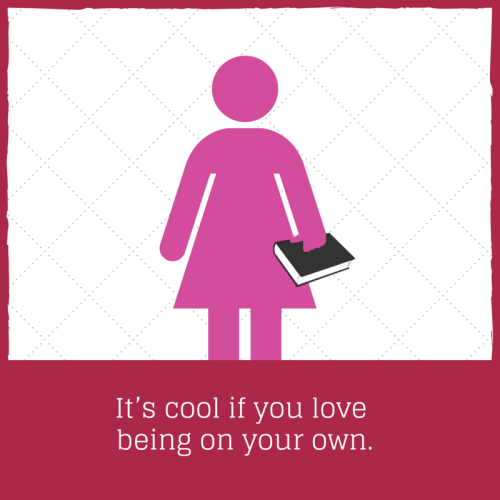
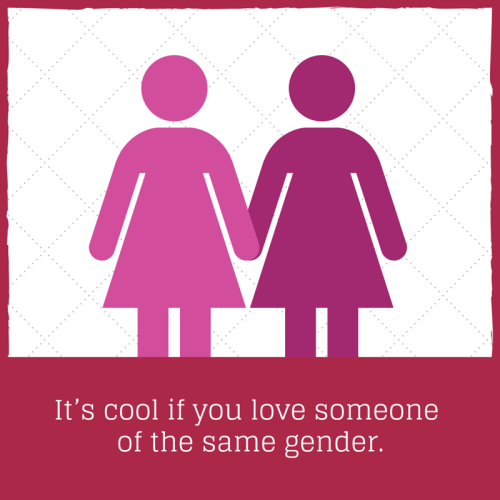
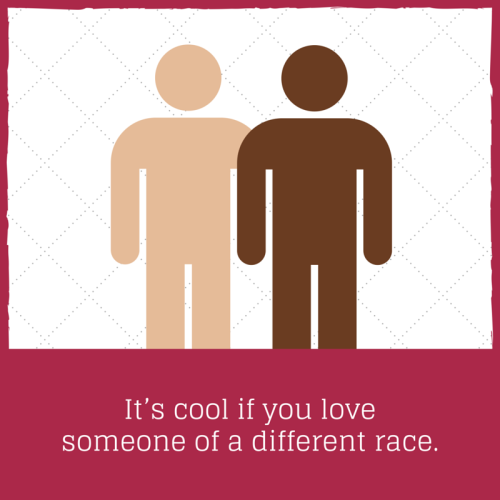

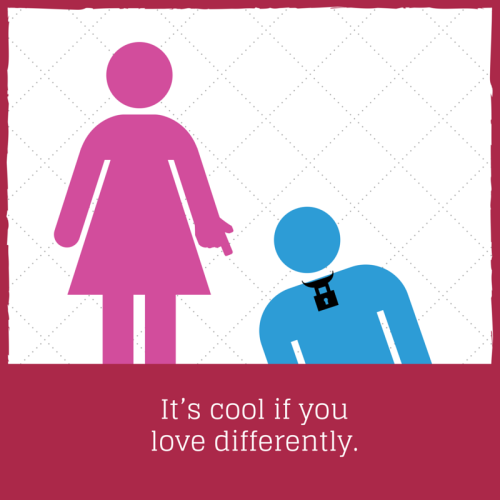
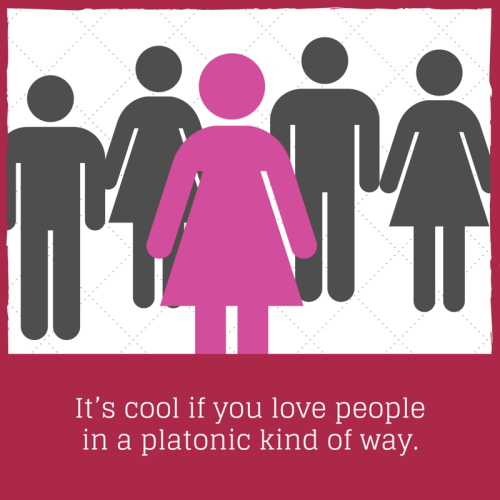
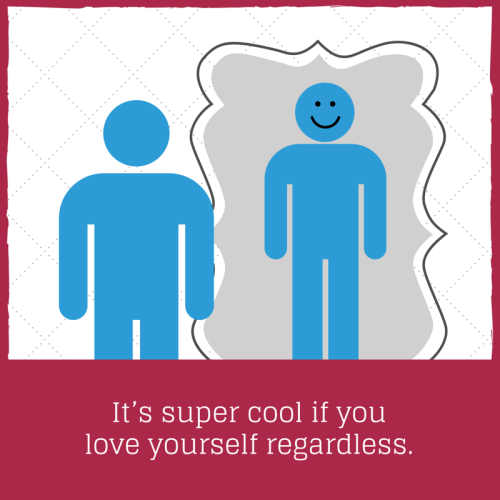
i will not stop doing peace signs in photos until there is world peace

noodles in a onesie








Beginner Yoga Backbend Practice with Kino. .(x)
If you want to move into backbends but don’t feel flexible this is the perfect practice to start with. Do this once a week for at least a month and then see how you feel.

my snoop 💛










After 65 years of Charlie Brown, Snoopy and the whole Peanuts gang, what keeps us coming back again and again?
“The ‘Peanuts’ story is arguably one of the longest-running works of contemporary American literature of our time,” author and editor Chip Kidd told us today as we explored the new “Peanuts” movie and his new Schulz retrospective, “Only What’s Necessary.”
(Charlie Brown is Back, October 23, 2015)
[Images courtesy of the Charles M. Schulz Museum and Research Center, Santa Rosa, California]

Space Gardening 101
You can’t escape eating (or gardening!) your vegetables, even if you’re in space. On Aug. 10, astronauts on the International Space Station sampled their first space grown salad. This freshly harvest red romaine lettuce was grown in the “Veggie” plant growth chamber that is designed to make gardens flourish in weightlessness.
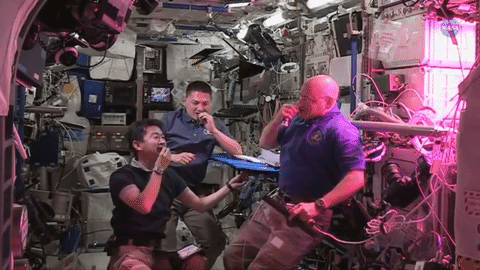
In a weightless environment, there is no up and down, so roots grow in all directions. Water and soil, the materials used to anchor these plants and allow for root growth tend to float away.
How Do We Grow Plants in Space?
1. Plant Pillows
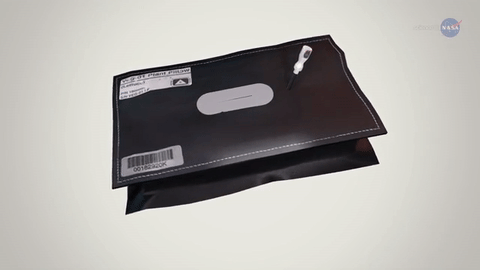
The Veggie chamber helps solve the problems of a weightless environment by using ‘plant pillows’, sounds comfy right? These pillows are bags filled with material for growing plants in space.
2. Wicks

Wicks are implanted into the bags and are used to draw water from inside the pillow to the plant.
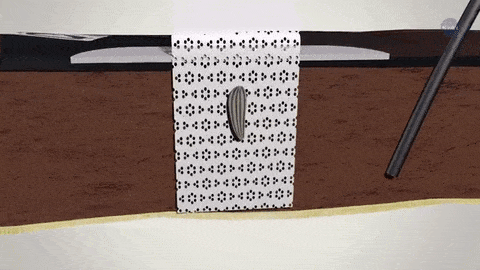
These wicks also provide a place to glue the seeds. It’s important to orient the seeds so roots will grow ‘down’, and shoots that emerge will push out of the bag.
3. LED Lights
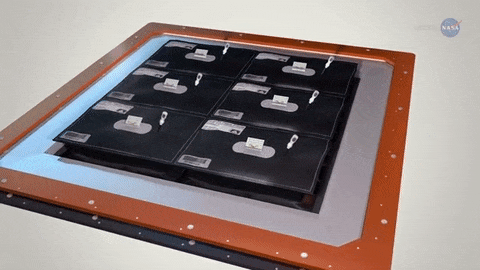
LED lights are used for photosynthesis and give the shoots a sense of direction so they keep growing upward. The walls of the Veggie chamber can expand to make room for the plant as it grows.
The purple/pinkish hue surrounding the plants in Veggie is the result of a combination of the red and blue lights, which is what the plants need to grow. Green LEDS were added so the plants look like edible food rather than weird purple plants.
Why are we growing plants in space?
When astronauts travel on deep space missions, like Mars, they will need to be self-sufficient for long periods of time. Having the ability to grow their own food is a big step in that direction. There is also a desire to grow flowering vegetables in space, which is why we are currently tending to zinnia flowers on orbit. Growing these flowering plants will help us understand longer duration growing plants that have to flower in space, such as tomatoes.
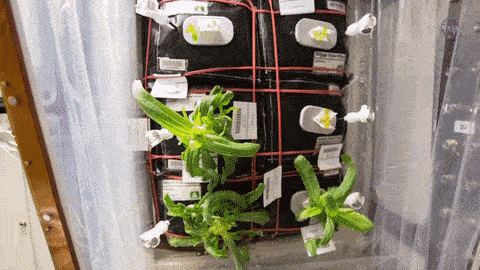
What’s Next? The next SpaceX delivery will include seeds for a small cabbage and additional red romaine lettuce. Upcoming experiments will use various ratios of red and blue lights and different fertilizers in attempts to improve crop yield, nutrition and flavor. The findings from these experiments can be utilized both on Earth and in space.
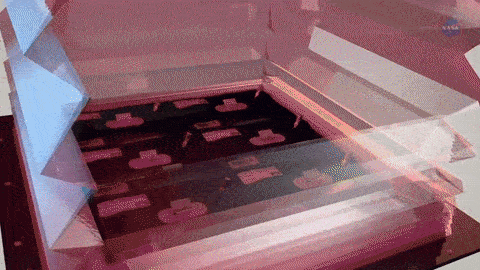
In addition to the nutrition benefits of growing vegetables in space, the psychological benefits are also significant. Having living plants can help with stress and increase the crews’ enjoyment. It provides the sights, smells and tastes of Earth.
To learn more about gardening in space, watch ScienceCast HERE.
Make sure to follow us on Tumblr for your regular dose of space: http://nasa.tumblr.com
quiero ser astronauta 🌌
7 Things That Happen When You Go To Space
Told Through Astronaut Scott Kelly’s Tweets
Astronaut Scott Kelly is currently spending a year in space. Most expeditions to the space station last four to six months. By doubling the length of this mission, researchers hope to better understand how the human body reacts and adapts to long-duration spaceflight. During this one-year mission, Kelly is also participating in the Twins Study. While Kelly is in space, his identical twin brother, retired NASA Astronaut Mark Kelly, will participate in a number of comparative genetic studies.
Here are a few things that happen when astronauts go to the space station:
1. Your personal hygiene takes on a different form:


2. Sleeping arrangements might take some getting used to:



3. Internet services will remind you of the 90s:

4. You never have to do laundry:


5. You get to become immersed in a range of different cultures:

6. All of your water is recycled…yes…that means urine too:


7. You get to see the Earth like never before:



Follow Astronaut Scott Kelly’s Year in Space mission on Facebook, Twitter and Instagram.
Make sure to follow us on Tumblr for your regular dose of space: http://nasa.tumblr.com
-
 sidcam liked this · 8 years ago
sidcam liked this · 8 years ago -
 yurinasruas-blog reblogged this · 9 years ago
yurinasruas-blog reblogged this · 9 years ago -
 kaylahearts-420 liked this · 9 years ago
kaylahearts-420 liked this · 9 years ago -
 plantiestgay liked this · 9 years ago
plantiestgay liked this · 9 years ago -
 th1129 liked this · 9 years ago
th1129 liked this · 9 years ago -
 11g liked this · 9 years ago
11g liked this · 9 years ago -
 catonmyshirt reblogged this · 9 years ago
catonmyshirt reblogged this · 9 years ago -
 catonmyshirt liked this · 9 years ago
catonmyshirt liked this · 9 years ago -
 littleplasticspaceship reblogged this · 9 years ago
littleplasticspaceship reblogged this · 9 years ago -
 rameno0dles liked this · 9 years ago
rameno0dles liked this · 9 years ago -
 ssbstan liked this · 9 years ago
ssbstan liked this · 9 years ago -
 cloud-william liked this · 9 years ago
cloud-william liked this · 9 years ago -
 addchan liked this · 9 years ago
addchan liked this · 9 years ago -
 paisleymoons reblogged this · 9 years ago
paisleymoons reblogged this · 9 years ago -
 i-lik3-giants reblogged this · 9 years ago
i-lik3-giants reblogged this · 9 years ago -
 i-lik3-giants liked this · 9 years ago
i-lik3-giants liked this · 9 years ago -
 trendstrend-blog reblogged this · 9 years ago
trendstrend-blog reblogged this · 9 years ago -
 drderange reblogged this · 9 years ago
drderange reblogged this · 9 years ago -
 drderange liked this · 9 years ago
drderange liked this · 9 years ago -
 sepdet reblogged this · 9 years ago
sepdet reblogged this · 9 years ago -
 nocoffeejuststudy reblogged this · 9 years ago
nocoffeejuststudy reblogged this · 9 years ago -
 asterea liked this · 9 years ago
asterea liked this · 9 years ago -
 katiekat1928-blog liked this · 9 years ago
katiekat1928-blog liked this · 9 years ago -
 chryso-poeia liked this · 9 years ago
chryso-poeia liked this · 9 years ago -
 melleh17 reblogged this · 9 years ago
melleh17 reblogged this · 9 years ago -
 melleh17 liked this · 9 years ago
melleh17 liked this · 9 years ago -
 maygodhavemercyonme reblogged this · 9 years ago
maygodhavemercyonme reblogged this · 9 years ago -
 saiya-tina reblogged this · 9 years ago
saiya-tina reblogged this · 9 years ago -
 ratchetracer liked this · 9 years ago
ratchetracer liked this · 9 years ago -
 blubbyly reblogged this · 9 years ago
blubbyly reblogged this · 9 years ago -
 blubbyly liked this · 9 years ago
blubbyly liked this · 9 years ago -
 reckless0restlessness reblogged this · 9 years ago
reckless0restlessness reblogged this · 9 years ago -
 markwyner liked this · 9 years ago
markwyner liked this · 9 years ago -
 mooniat reblogged this · 9 years ago
mooniat reblogged this · 9 years ago -
 mooniat liked this · 9 years ago
mooniat liked this · 9 years ago -
 hauunted reblogged this · 9 years ago
hauunted reblogged this · 9 years ago -
 amantedelalunayelmar liked this · 9 years ago
amantedelalunayelmar liked this · 9 years ago -
 ethanpala reblogged this · 9 years ago
ethanpala reblogged this · 9 years ago -
 dragonfruitsoup liked this · 9 years ago
dragonfruitsoup liked this · 9 years ago -
 finding--bliss reblogged this · 9 years ago
finding--bliss reblogged this · 9 years ago -
 pareidolaliiiiia liked this · 9 years ago
pareidolaliiiiia liked this · 9 years ago